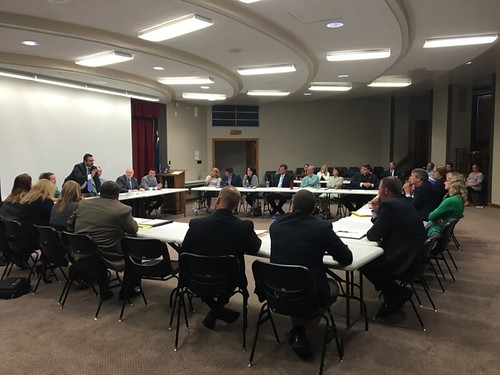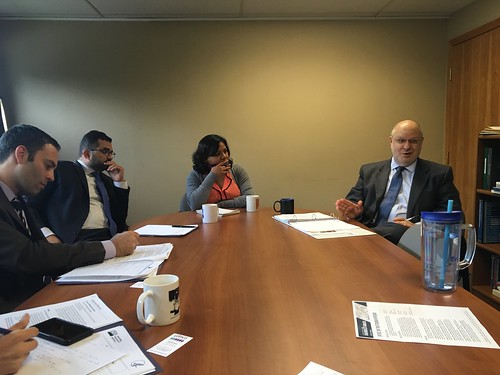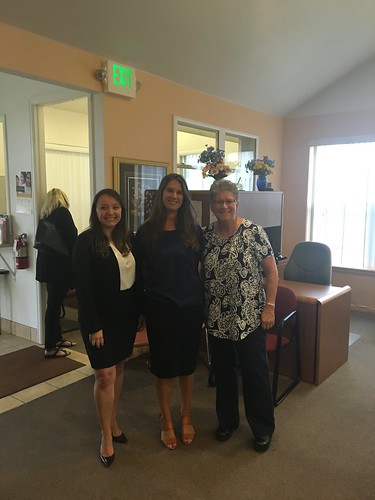
Human trafficking is a form of modern-day slavery and many survivors of it didn’t realize that their situation was a crime. This crime occurs when a trafficker uses force, fraud or coercion to control another person for the purpose of engaging in commercial sex acts or soliciting labor or services against his/her will. Any child engaged in a commercial sex act is a victim of trafficking, regardless of force, fraud, or coercion.
This summer, USDA and HHS leveraged its resources to coordinate efforts that address the needs of human trafficking survivors in rural and tribal areas. This joint partnership resulted as part of the Federal Strategic Action Plan on Services for Victims of Human Trafficking in the U.S., a five-year plan by the President’s Interagency Task Force to Monitor and Combat Trafficking in Persons. This Plan outlines more than 250 actions the Federal government will take to coordinate and collaborate on anti-trafficking responses with state, Tribal, and local government and non-government organizations.
In June, July and August, USDA and HHS hosted a series of listening sessions as part of a pilot project so that we could better understand the challenges facing rural and tribal communities when meeting the needs of human trafficking survivors. Leaders from USDA and HHS participated in outreach sessions in Marksville, Louisiana; Bismarck, North Dakota, and New Town, North Dakota; and Denver and Greeley, Colorado. These locations were chosen as pilot states because both USDA and HHS have equal equities in these locations.
In order to launch this joint USDA and HHS pilot project, we used USDA’s StrikeForce for Rural Growth and Opportunity Initiative which works to address the unique set of challenges faced by many of America’s rural and tribal communities. Through StrikeForce, we were able to leverage USDA resources as well as collaborate with partners and stakeholders to improve economic opportunity and quality of life in these areas. Because USDA’s StrikeForce partners with rural communities and regions on locally-supported projects, the StrikeForce infrastructure was a good mechanism to launch the USDA and HHS pilot project in its efforts to better help rural and tribal communities deal with the human trafficking issues.

And through HHS’ Administration for Children and Families programs, we were able to work with grantees that serve survivors of human trafficking and who build the capacity of the anti-trafficking field, including local organizations and the National Human Trafficking Hotline. The intersection of human trafficking in rural communities provides a key opportunity for inter-agency collaboration to better understand how rural providers encounter and confront issues of human trafficking, including victim identification, provision of services for survivors, and prevention of trafficking.
Through these outreach sessions, we focused on (1) understanding the challenges facing rural-based service providers in meeting the needs survivors of human trafficking and those at risk of trafficking for safe and appropriate services, (2) recognizing best practices in supportive services for trafficking survivors, and (3) helping identify potential changes in policies, training and technical assistance, outreach, or other areas to better assist rural communities to effectively meet the needs of victims of human trafficking.
These meetings were very insightful and helped us really gain a better understanding about the complexities of such tragic circumstances in these communities. For example, the outreach session in Newtown, ND connected local law enforcement and the state human trafficking training professionals. This connection will ensure that Newtown, ND police officers receive training so that they better understand human trafficking and how to spot it in their community.
Because human trafficking is a hidden crime, victims rarely come forward to seek help because of language barriers, fear of the traffickers, and/or fear of law enforcement. Victims might be afraid to come forward or we might not recognize the signs even if it is happening right in front of us. We need to bring this crime out of the shadows. Traffickers use force, fraud, or coercion to lure their victims and force them into labor or commercial sexual exploitation.
Criminals often prefer conducting illegal activities in rural communities over urban and suburban cities because smaller towns have fewer resources to deal with criminal behavior, including less law enforcement on patrol. While there are a number of factors that drive the presence of human trafficking within rural localities, persistent and disproportionate rates of poverty are often a major contributing factor.
The results and key findings from these invaluable listening sessions will be compiled and released early next year. Recognizing key indicators of human trafficking is the first step in identifying victims and can help save a life. The DHS Blue Campaign is a valuable resource for more information about human trafficking. The Blue Campaign unifies DHS efforts to combat human trafficking.
The National Human Trafficking Hotline (1-888-373-7888), funded by HHS, is a national toll-free hotline answered live 24 hours a day. Anti-Trafficking Hotline Advocates provide assistance to victims in crisis through safety planning, emotional support and/or immediate connections to emergency services through our network of trained service provider and law enforcement partners. The hotline also takes tips about potential situations involving all forms of sex and labor trafficking and facilitates reporting to specialized human trafficking task forces, federal authorities, local law enforcement, and service providers throughout the country.




